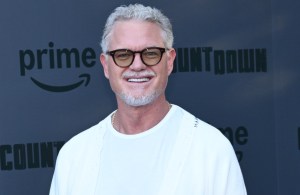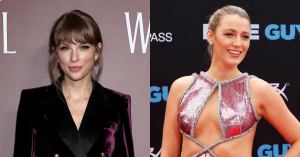Al Roker has joined the growing list of celebrities whose likenesses have been manipulated through artificial intelligence technology for fraudulent marketing schemes.
The TODAY Show weatherman recently discovered his image was being utilized in fabricated promotions for hypertension treatments, according to a segment that aired on NBC’s morning program.
Videos by PopCulture.com
The veteran broadcaster explained that he learned about the unauthorized use of his likeness after receiving a message from an acquaintance. “A friend of mine sent me a link and said, ‘Is this real?’” Roker told TODAY‘s senior investigative consumer correspondent Vicky Nguyen. “And I clicked on it, and all of a sudden, I see and hear myself talking about having a couple of heart attacks.”
Roker immediately recognized the deception, emphasizing, “I don’t have hypertension, nor have I ever had any heart attacks.” Nevertheless, he acknowledged the convincing nature of the manipulated media. “It looks like me! I mean, I can tell that it’s not me… but to the casual viewer, Al Roker is touting this hypertension cure,” he noted during the segment.
The digital forgery represents a sophisticated example of “deepfake” technology, which employs AI to generate realistic but fraudulent video and audio content. Following TODAY’s inquiry about the counterfeit advertisement, Meta, Facebook’s parent company, confirmed to the program that they had “removed this page for violating our policies.”
The meteorologist revealed that the impact extends beyond himself. “I’ve had some celebrity friends call because their parents got taken in by it,” Roker shared, highlighting how these convincing fakes can deceive even those with personal connections to the impersonated figures.
This incident isn’t an isolated case. Similar unauthorized AI-generated content has targeted numerous high-profile individuals. According to TODAY, Taylor Swift was depicted in a fabricated video supposedly promoting cookware collections last year. Media mogul Oprah Winfrey and Tom Hanks have also publicly denounced similar schemes, with Winfrey explicitly stating in 2022, “I have nothing to do with weight loss gummies or diet pills.”
The Federal Trade Commission reports that imposter scams, including celebrity impersonations, represented the most commonly reported fraud category in 2024, resulting in consumer losses exceeding $2.9 billion.
Yoav Keren, CEO of BrandShield, a company specializing in protecting brands and public figures from impersonation schemes, told TODAY that most consumers remain unaware of how easily such deceptive content can be produced. “I think this is becoming one of the biggest problems worldwide online,” Keren warned.
Roker expressed concern about the broader implications of increasingly sophisticated AI forgeries. “It’s frightening,” he remarked. “We used to say, ‘Seeing is believing.’ Well, that’s kind of out the window now.”
To help viewers protect themselves from similar scams, Nguyen offered several recommendations: carefully examine videos for inconsistencies, particularly with lip synchronization; research products through independent sources before making purchases; and exercise caution when interacting with social media advertisements.
Despite some legislative proposals addressing AI regulation, Keren noted that the current environment remains largely unregulated, describing it as “the wild West” with limited government oversight to address these emerging threats.
Most Viewed
-

Beverly Hills, CA – January 31, 2026: Jelly Roll, left, and Bunnie Xo, right, pose for portraits on the red carpet during the 68th GRAMMY Awards Pre-GRAMMY Gala & GRAMMY Salute to Industry Icons Honoring Avery Lipman & Monte Lipman at the Beverly Hilton on Saturday, Jan. 31, 2026 in Beverly Hills, CA. Clive Davis’ annual pre-Grammy party hosts an array of A-listers from entertainment, sports, and politics to come together and enjoy performances. (Kayla Bartkowski/ Los Angeles Times)







